The following is an excerpt from “Israel: Democracy, Race, Ethnicity, and More” (Fragments #2).
Editor’s note: This roundtable was conducted via Zoom on March 12, 2024. It has been edited and condensed lightly for length and readability.
Participants: MK Aida Touma-Sliman; Dr. Liora Halperin, PhD; Dr. Yali Hashash, PhD
Facilitator: Rabbi Lev Meirowitz Nelson
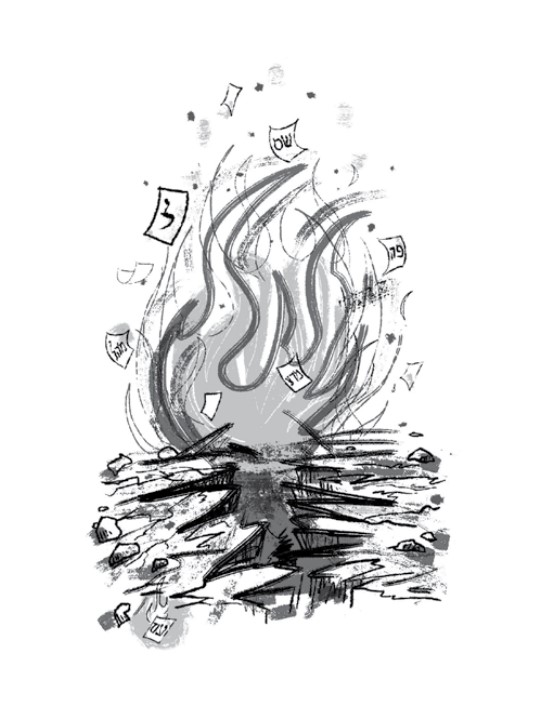
Lev Meirowitz Nelson: Before October 7 happened, how would you have described Israeli democracy?
Yali Hashash: Lacking. Full of contradictions. The one that is always discussed is “Jewish and democratic,” but there are also the ethnic hierarchies in Jewish society, and class differences. Mostly, though, in a constant state of danger, to a point where you don’t know if the danger has already happened, if you’re living the disaster, or you’re anticipating it.
Aida Touma-Sliman: In the last 10 years or so, Israeli so called democracy — which was, from the beginning, a narrow and ethnic democracy — has become even narrower, almost vanished. Because there is no way to speak about democracy when you are escalating
occupation and alienating 20-25% of your citizens and pushing them out of the circle of citizenship. In my opinion, there’s another name for that kind of democracy. It’s called apartheid.
And excuse me if I’m saying “Israel,” because usually in the past I used to say the Israeli government. But one day my daughter asked me, “Mom, if it’s all the Israeli governments, then why are you always insisting, as if to differentiate between the State of Israel and the politicians who run it?”
You know, some people ask us how we can talk about apartheid, because under apartheid you don’t have the right to vote or to be elected. Usually I say Israel is allowing us to do this — especially this government — because it makes it a hollow issue. There is no real possibility to exert influence. The minute the influence issue is tested, we are pushed out.
Anyway, I think the fragility of Israeli democracy was very clear in what was going on before the 7th of October. Up until the 6th of October, we saw the attack by the government [on the judiciary]. When people went out to demonstrate and protest against the judicial overhaul, we were pushing for saying very clearly that you need to speak also about the occupation, and there is no way to have democracy with occupation. That was refused by the majority of [protesters]. It means, very clearly, there is no understanding and internalization of the real meaning of democracy. And, on the other hand, it might also be that the majority still understand democracy as something for the Jews, really, and not for all of us.
LMN: When you said in the last 10 years, is there a specific event or moment that you look at as a turning point?
ATS: In 2005, we started what is called the Future Vision Document, which was, in my opinion, a turning point for the Palestinian minority inside Israel. We started to rethink what kind of democracy, what kind of state we want to be partners in. There were also attempts to create a constitution for Israel that included Jews and Arabs, academics and activists, all working together. And it exploded; they couldn’t agree on a constitution.
There was a lot cooking at the time, and we started to see results after 2015. That’s when the Joint List was created, and it became a kind of a big attraction also for democratic Jews. It created a euphoria… almost like the other kind of joint! There was suddenly a hope to create a new political power that could really challenge the hegemony of the right wing in Israel.
I think that made the right wing look not only to their project beyond the Green Line but also understand that they need to attack this pillar of real democracy, the Palestinian community inside Israel. And so, of course, we ended up in 2018 [with the Nation-State Law]. Those were some stops along the way.
Liora R. Halperin: My thinking takes us back even further. When we look at democracies historically, there’s very wide variety in who is given the right to vote or be represented in the first place. And then also, in what way does the minority, whether it’s an ideological minority or a national or ethnic minority, get protected? If we think about all of the models, the ones that lifted up the ideal of democracy — the United States, France, Britain — they were all built on exclusion. Of women, of people who didn’t own land — in other words, the poor — of enslaved people, of non-white people or other racialized people. Of course, huge millions of colonized people outside of the geographic boundaries of the country. In Israel, this principle of inclusion and exclusion has been there from the beginning. This is why scholars like Oren Yiftachel have called it an ethnocracy: It’s a democracy where the principle of inclusion is being members of a particular ethnic group, and if you’re not, you’re either very provisionally in, or you’re just completely out.
YH: I agree, but I think the history is not necessarily linear. In many ways, between ‘48 and ‘67, Israeli democracy was extremely narrow. And then, during the ‘70s, in many ways it widened within the Green Line. So while there’s a very clear deterioration of democracy overall, it is not linear, and it has not affected all populations in the same way. For many people, Israel became more democratic with the years, and their lives changed as a result. It’s been very tangible. The fact that more people could become part of the public sphere, and more people could mobilize themselves through society — it was even true for Palestinians in Israel. So you could see a very clear establishment of a Palestinian and Mizrachi middle class during the ‘90s and during the 2000s that was not there before. We should also relate to that aspect; I think it’s one of the things that creates the feeling of deep contradiction.
For many people, the fact that Palestinians keep insisting that the occupation should end — or that the occupation is a problem to begin with — feels so strange because our lives are kind of getting closer to… If you imagine life in the so-called West as consisting of some kind of convenience, some kind of access to resources, or some kind of freedom to express yourself and to maybe mobilize yourself through society, there was a large population in Israel that was feeling those qualities getting stronger. And as they got stronger, Palestinians insisted more and more, “Sorry, we’re still here, and it’s going to be painful if you’re not going to see us.” The contradiction was just so, so deep, because I’m living the liberal dream, and then someone comes along and tells me that I’m an occupier, and in that I’m not liberal in any way.
It’s like when you meet a class, and someone says they don’t have money for transportation. It doesn’t make sense, so you don’t build it into your worldview. You just kind of ignore it, and it doesn’t exist because you don’t look at it.
ATS: But this is part of what was created by the same governments who wanted to continue the occupation, part of the process of building the wall and disconnecting. I think that many of the new generation of Israelis, including the Palestinian citizens of Israel, have never visited the West Bank. They do not see what is happening behind the wall. And of course, the Israeli media is contributing to this illusion of the possibility of alienating yourself from this situation.
But let’s not give them too much credit, because, sorry, they go to the army, they serve in the West Bank, they practice these policies, their sons and daughters go to the war — like now — and they do know what they go through there. Many of them are weighing what they can earn from conforming and what they can earn if they are going to confront there. As long as confrontation with the reality — protesting or refusing to be part of the occupation and militaristic machinery — takes a higher price, you will have very few people who are willing to do it.
Like now: A lot of people are saying the Israeli media is not showing anything about the war in Gaza, so people don’t know what is happening. Oh, please. If the Americans can watch what is happening in Gaza, and Sri Lanka can know, the Israelis [can too]. Half of the young people serve there and go back with horrible stories. The videos on Telegram and everywhere else show what they are committing there — and very proudly.
YH: I actually think most people are under occupation at the moment. Personally, I watch with horror the way the camp that sees itself as liberal is completely enlisted into the settler state war. Completely, without question. Everyone, including the so-called secular media, is on the one hand criticizing the ultra right government and, in particular, the Prime Minister, but no one is doubting that the military operation is necessary, and that it is a big problem when anyone asks us to stop. Basically, the people leading this are a small minority, the heads of the settler state, but the people are going there blindly and happily. I don’t even have words to explain how it is at all possible.
LRH: Democracies have a long track record of being very selective in their view of who the “we” is that needs to be protected and who’s actually threatening “our” democracy. And those people could be insiders. People whom the democracy really should be including and protecting but who can be portrayed as threats that need to be pushed down to keep the democracy safe. We’re pointing to these psychological maneuvers that people make to imagine that certain people in certain places are simply outside of their concern, and therefore they can support incredible violence while still feeling really proud of their sense of their own community or state as a democracy or a liberal model.
YH: Everything is so sad.
LMN: Are there other aspects of, or cracks in, Israeli democracy that the current war has exposed?
YH: It revealed again the way that the evangelical alt right is operating as a global fascist movement and the way that it has taken hold of so many power structures in Israel. The way the evangelical right wing is influencing and shaping what Judaism is and what the state of Israel is. The alliance between the settler state and the evangelicals is so strong that you have this religious power that is waging a crusade. Like what is happening in Gaza and what is happening with the Temple Mount. Israelis are allowing themselves to be soldiers of Armageddon without any scrutiny.
LMN: Liora, I want to turn to you on that. I’m curious how the American Jewish perception of Israel is or is not at odds with the evangelical movement Yali was just describing.
LRH: Well, there are many different American perceptions of Israeli democracy, so let’s be careful not to speak in monolithic terms. But it’s actually quite interesting how the divides track along political
polarizations that are much bigger.
You have folks on the far right, who in the U.S. are pushing for a more exclusionary American democracy. They want a certain kind of white Christian majority rule. So they’re supportive of the idea that some kind of similar parallel exclusionary society can and should take place in Israel. That’s also wrapped up in theological ideas about the Second Coming.
And then you have a certain liberal American narrative, which is shared by a lot of Jews who think of themselves as liberal, that sees American democracy as a work in progress — imperfect, it has gotten better over time, we can make it better, it’s ultimately a model for the world — who will also turn to Israel and say, Israeli democracy has its problems. It could be more equal, it should be more equal, but it is a model.
And then you have folks on the left relating to both places who have some very, very profound concerns about whether American democracy has ever been democratic and if its very structure even allows for the kind of liberal democracy that one might aspire to. Whether they’re pointing to the fact of the carceral state, taking away rights of inclusion from millions and millions of mostly Black and brown people, or they’re thinking about the land theft that was at the basis of the country, or just the way representation is structured to downplay the vote of people in urban areas. Many of those folks have taken up certain Palestine solidarity politics that say Israeli democracy is also built on rotten foundations.
I don’t want to say it always tracks like this. But I think oftentimes there’s some real back and forth between a discussion about what is the nature — or what should be the nature — of American democracy, and what is and what should be, what could be the nature of Israeli democracy, and Jews are breaking apart along those lines, too.
LMN: Aida, what would you say about the war?
ATS: For me it revealed the hypocrisy of the so-called center to the left. It’s not like I didn’t know that. But it’s out. They are very clear, and nobody can deny it any more. People who just five months ago were demonstrating under the claim of protecting democracy are willing to commit this horrible war and to support it. To feel united with the same horrible government. Beyachad Nenatze’ach. “Together, we will have victory.” On what basis? I understand the sorrow and agony of the Israeli and Jewish people who went through the 7th of October, but suddenly you are united with Ben Gvir and Smotrich and all those settlers? I cannot understand it, unless you are really revealing exactly who you are. Ganz jumping into the government — it’s not like I had big expectations from Ganz, but still!
On the other hand, I think it also revealed the well-structured, organized fascist groups in Israel. You could see it in the issue of distributing weapons, willingness of arming the public sphere, grouping into Whatsapp groups immediately. More and more religious, fanatic discourse exists even in the mainstream Israeli media. You could see it. You can hear it. How the Israeli media immediately [felt] part of the security establishment, repeating every lie that they are given and attacking anybody who is bringing a different discourse. It shows how deep the anti-democratic values are rooted in many places. You could see the judicial system behaving differently; they were scared because of the right-wing attacks on any judge who just behaved as a normal judge and went by the law and did not agree to participate in this… It shows how the society internalized the censorship. Lately, you don’t need military censorship in Israel. It’s already existing inside everybody. So yes, there is a very, very scary situation.
YH: And to add to that, it’s not only people in the street [or] right-wing politicians — you expect that from them. But when universities are the first to start the witch hunt — and not the universities: the presidents of universities! I never expected much from Israeli academia to begin with, but still, this goes beyond… it was horrible. So, we are living the disaster. We’re not expecting it anymore. We’re just — no, we are surviving the disaster.
LMN: Is there anything on the horizon that’s giving you hope for things changing or for better days?
YH: It gave me hope to get my Portuguese passport, just to know that I have a getaway. But then they had the elections. So I’m not hopeful anymore. Again.
ATS: Are you able to tolerate a bad joke? You know that a lot of Israelis are thinking of leaving the country, including Yali and the Haredim who will be drafted, so maybe that will give us more possibility to influence things here.
YH: If anything gives me hope, it’s the ability to have joint spaces of Palestinian and Jewish feminists who share similar concerns, and just even to be able to be scared together and to think of how we can protect each other from the days to come. It means a lot.
Okay, I’ll say something different. I think the conflict has reached a certain peak. The fact that the Palestinian demand for statehood is gaining such support around the world today might mean that things are finally going to change. The Israelis will finally have to resign to the fact that you cannot keep an occupation going, that it’s not sustainable.
LRH: I would like to think that this huge earthquake will bring about something better. It’s felt like things were frozen in a very bad place. And now things are unfrozen in an even worse place. It does sometimes give me hope that things seem to have become dislodged in a way… I guess the hope is that when things settle, it’ll settle into a better place.
I do draw hope from folks, whether journalists, academics, activists, who are doing really intensive reflection — poetry, other creative work that’s trying to take stock of this moment — and also the folks on the ground who are documenting the facts, giving us access. Even those who aren’t looking now, we’ll see it later. There’s a record that is going to be really, really important, as we, over the coming years, make sense of what this all means. There are a lot of heroic people making that record for us.
ATS: When I look at the situation inside Israel, I don’t have a lot of hope. We are in a bad situation, and I think the Israelis need to be freed by the international community from the situation of being hostages in the hands of this government and this way of thinking. Without international pressure, there wouldn’t be hope. What makes me feel hopeful is the international solidarity anti-war movement that has lately been applying pressure on all the different governments.
There is some lip service that has been paid by the U.S. administration, including sanctions against convicted settlers, which is a little bit ridiculous because all settlers by international law are criminals. But anyway, at least they broke this taboo. I will be more hopeful when I see the United States of America stop using the veto.
I’m a little bit more hopeful because people are starting to talk about recognition of the Palestinian state, too.
Usually I’m building up on our communities, but this time I’m looking outside for hope.
Editor’s postscript: On March 25, two weeks after this roundtable, the U.S. withheld its veto and allowed the UN Security Council to pass a resolution calling for an immediate ceasefire in Gaza.
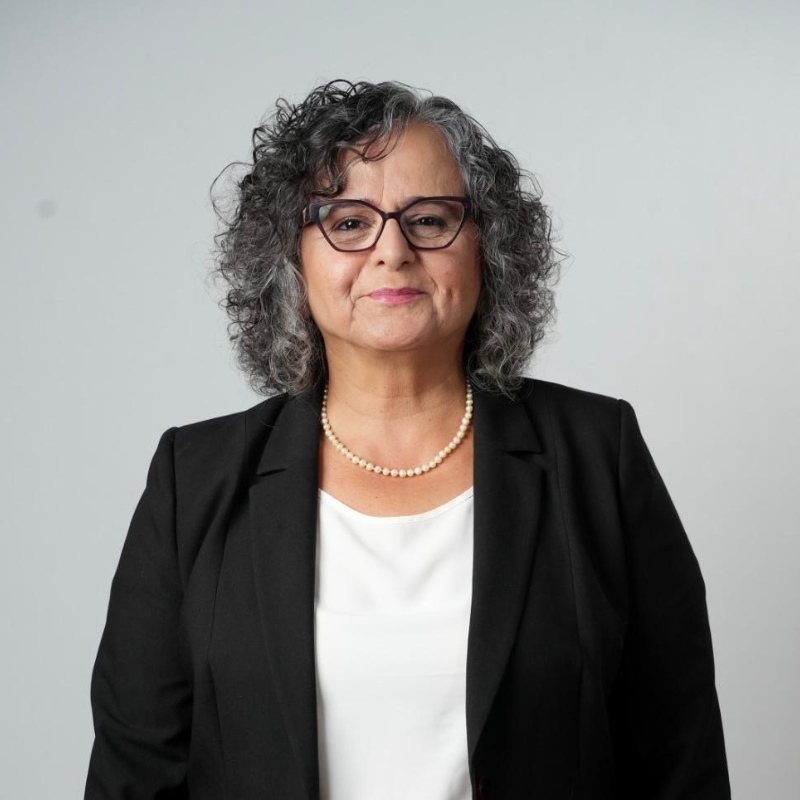
MK AIDA TOUMA-SLIMAN is a member of Knesset representing Hadash (Democratic Front for Peace and Equality), an Arab-Jewish party. She was first elected in 2015 and served as the first Arab chair of the Knesset statutory committee on the Status of Women and Gender Equality until 2022. MK Touma-Sliman was the first woman to serve in the High Follow-Up Committee for Arab Citizens of Israel and is Co-founder of the International Women’s Commission for Just Palestinian-Israeli Peace. She is also a secretary member of the World Peace Council.
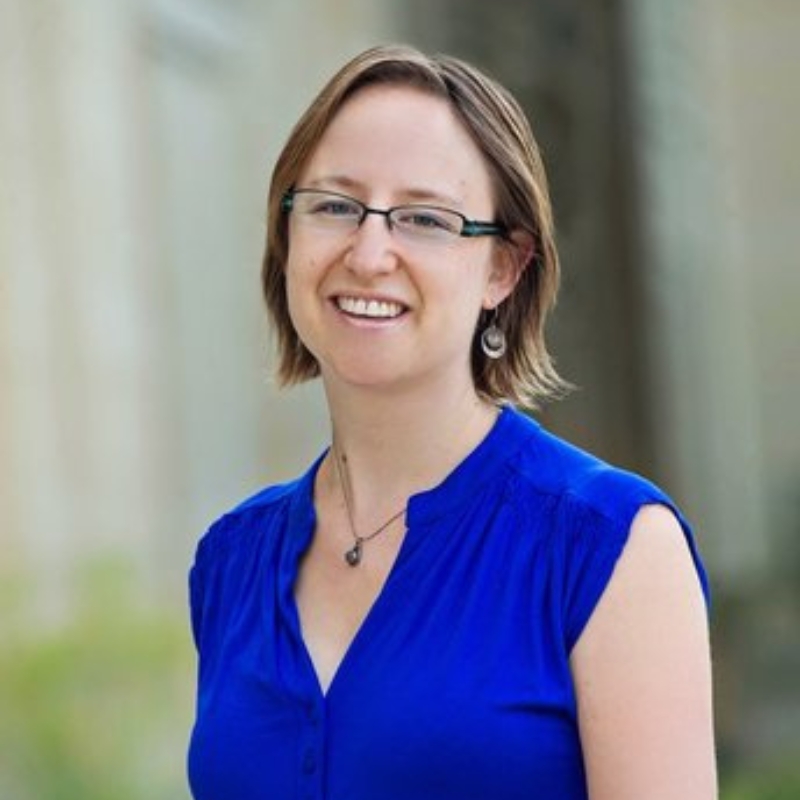
DR. LIORA HALPERIN, PhD is Professor of International Studies and History, and Distinguished Endowed Chair of Jewish Studies, at the University of Washington. She is an historian of Israel/Palestine with particular interests in nationalism and collective memory, Jewish cultural and social history, language ideology and policy, and the politics of colonization and settlement. She is the author of two books; the first, Babel in Zion: Jews, Nationalism, and Language Diversity in Palestine, 1920-1948, was awarded the Shapiro Prize from the Association for Israel Studies for the best book in Israel Studies.
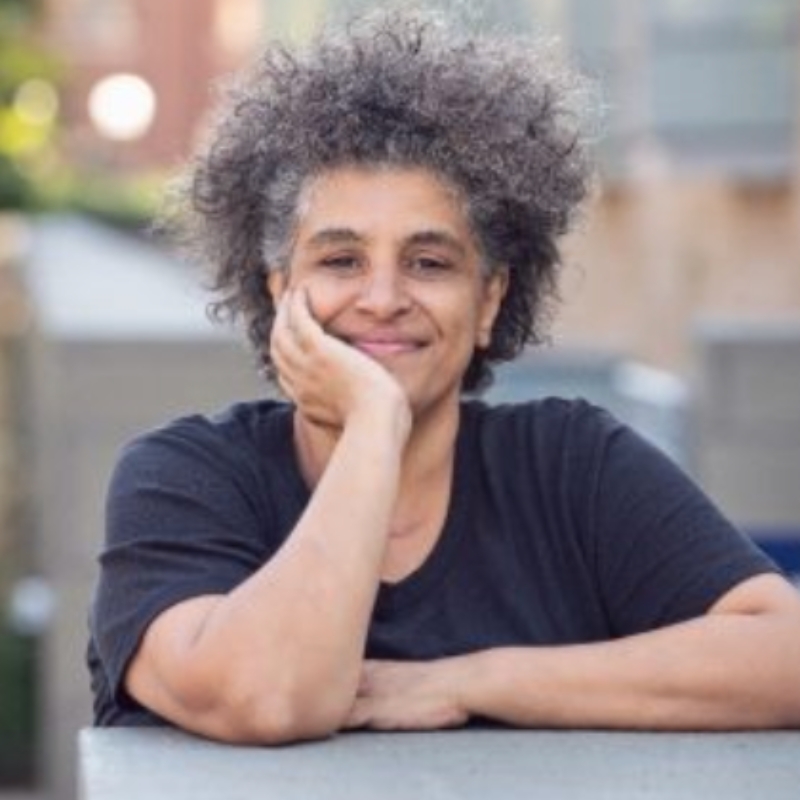
DR. YALI HASHASH, PhD (she/her) is a Mizrahi queer feminist academic. She has a PhD in Jewish History (Haifa University, 2011). Her research interests include social history of 19th and 20th century Palestine and the Middle East, poverty, gender, nationalism, ethnicity, and religion. She is the community coordinator of Isha L’isha Haifa Feminist Center. Her book, “Whose Daughter Are You – Ways of Speaking Mizrahi Feminism” was published in 2022 in Hebrew and is currently under translation for Wayne State University Press.
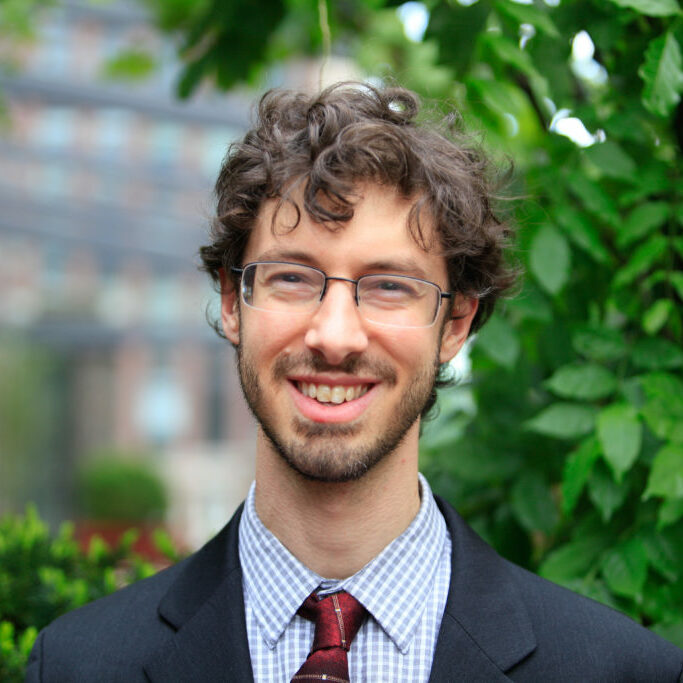
RABBI LEV MEIROWITZ NELSON (he/him) is Director of the Emor Institute, in which role he edits “Fragments,” and Director of Leadership and Learning at T’ruah.
